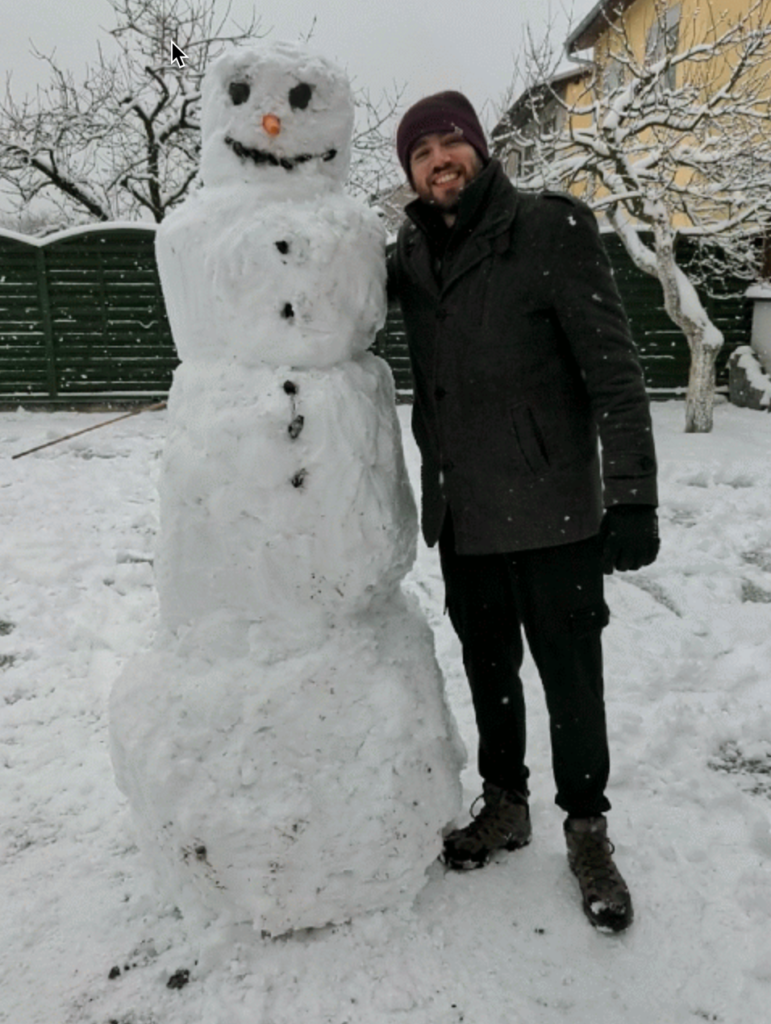Rommil from Experiment Nation: Hi Edd! Thanks for taking the time to chat. Could tell our audience a bit about yourself.
Edd Saunders: Hi, I’m Edd, I’m from the UK and I live down on the south coast, just outside of Brighton. I work as an Optimisation Consultant for LeanConvert, helping my clients find ways of driving their digital products forward.

Very nice. I’d love to hear a bit about your career path and how you got to where you are today.
I don’t think there is a ‘traditional’ route into CRO, and my path is as crazy as the next person’s. My first job after university was as a recruitment consultant, but I found cold-calling candidates exceptionally dull. No one picked up their phone, so I had to get creative with email marketing. I realised that experimenting and running rudimentary AB tests with email subject lines was more enjoyable than chasing constant recruitment KPIs, so I trained myself as a marketing generalist to explore this area more deeply. After a few roles in digital marketing, I shifted into a Product Analytics role (I loved the data) to get more hands-on CRO experience. The opportunity came up with LeanConvert and I made the leap into consulting and I haven’t looked back!
I agree, I’ve done this for a while and haven’t heard two paths that were the same yet. As someone from the UK, what is the Experimentation community like there?
The LeanConvert team is world-class at what we do and I’m exceptionally grateful I get to work with such a smart and talented bunch of people.
The UK is home to other world-leading optimisation agencies and I’ve had the chance to meet or learn from some really smart people either directly by seeing them talk, or indirectly by reading the content they put out.
What events and people do you recommend people check out in UK?
Events have been thin on the ground recently, but Digital Elite Day is the best conference I’ve attended pre-pandemic.
I think everyone can agree that site speed is important – but most probably don’t understand much beyond that. Could you give us a crash course on Google’s Core Web Vitals?
The Core Web Vitals (CWV) update was released at the end of last year, and shifts the focus onto site speed under the lense of usability. We’ve all seen how large and bloated websites have become over the last 10 years. Google wants to do something about this.
As part of this update, Google developed a metric set to quantify the user experience impact of site speed. Prior to this, there were a few different metrics floating around for this purpose. CWV aggregated this and packaged it in an easier to digest format.
The metric set measures a visitor’s perception of how long a website takes to load.
To a normal visitor, a homepage which takes 7 seconds to finish loading vs one which takes 4 seconds isn’t really noticeable. However, if that 7-second page can serve the hero image after 1 second, the visitor will perceive that to be quicker than the 4-second page that shows a plain white screen. There’s a lot of nuance and psychology which often gets missed, as site speed is traditionally seen as a dull engineering-based task.
Site performance is fundamentally a user experience issue, and the CWV update is bringing this awareness into the mainstream, which is what makes it so exciting!
As someone that is enthusiastic about site speed, do you have any thoughts about what kinds of Experiments could be run to show the value of increasing site speed?
A better performing site cultivates a better brand perception, better quality data collection, a much better experience for visitors who have accessibility needs (and especially much better for visitors on lower-end devices).
The best way to experiment is to do a baseline comparison study of your changes. E.g, take a 30 day period prior to pushing the release, then monitor for the next 30 days and compare your KPIs
“Communication skills are paramount as a consultant, but you also need a healthy dose of humility and the ability to not take decisions personally. ” – Edd Saunders
Tweet
As an optimization consultant, what types of challenges excite you most?
Constraints breed creative solutions. I enjoy problems where some of the obvious solutions are blocked (be it due to sample sizes, technical limitations, etc) and it really forces you to think ‘inside’ the box.
Having been a consultant for close to 2 years, what are some of the objections you face and how do you handle the most prevalent ones?
Communication skills are paramount as a consultant, but you also need a healthy dose of humility and the ability to not take decisions personally. My role isn’t to tell clients what to do, it’s to coach and guide them towards their objectives using my skillset and the resources at my disposal. Most of the ‘traditional’ objections you read about actually aren’t problems when you change your mindset and approach.
That being said, the most common objections usually crop up from test QA or data collection of tests. Nothing is worse than a visual or data issue slipping through QA and into production. As long as you’re learning and putting a solid system in place to minimise risk, it’s generally easy to handle these issues.
Let’s change gears. It’s time for the Lightning Round! Describe yourself in 5 words or less.
Optimistic experimenter focused on growth.
Frequentist or Bayesian?
Frequentist.
If you couldn’t work in Experimentation, what would you be doing today?
My inner child still wants to be an F1 driver who moonlights as an astronaut, but I think that ship has sailed. There are some interesting challenges in logistical optimisation, so probably that area!

Never say never? lol What do you have going on that you feel our audience should know about?
I’ve started a podcast along with my colleague Bri, called The Lean Optimiser. We’re discussing the future of product and the tools and strategies of getting there.
Very nice! Who should we interview next?
Bri Axon. She’s the co-founder and Ops Director of LeanConvert (and podcast co-host!)
Sounds good – We’ll reach out. Thanks for taking the time to chat today!
If you liked this interview, signup for Experiment Nation’s bi-weekly newsletter to receive more great interviews like this, memes, editorials, and conference sessions in your inbox: https://lnkd.in/g6rM8w25
Connect with Experimenters from around the world
We’ll highlight our latest members throughout our site, shout them out on LinkedIn, and for those who are interested, include them in an upcoming profile feature on our site.
Advertisment
Categories
- Adventures in Experimentation (9)
- Analysis (2)
- Announcements (80)
- Ask the Experiment Nation (11)
- Certified CROs (193)
- Community (2)
- Conversation Starters (2)
- CR-No (5)
- CRO Handbook (4)
- CRO Memes (18)
- Experiment Nation: The Conference RELOADED (41)
- Experimentation from around the world (2)
- For LinkedIn (153)
- Frameworks (2)
- Growth (14)
- ICYMI (2)
- Interviews with Experimenters (198)
- Management (1)
- Marketing (11)
- Opinion (8)
- Podcasts with Experimenters (15)
- Point/Counterpoint (1)
- Product Experimentation (5)
- Product Management (9)
- Profile (9)
- Question of the week (5)
- Sponsored by Experiment Nation (1)
- The Craft of Experimentation (1)
- The Cultures of Experimentation (1)
- The weekly buzz (13)
- The year in review (1)
- Uncategorized (352)
- Weekly Newsletter (184)
- Where I Started (2)
Related posts:
- Don’t rely on macro goals with Gursimran (Simar) Gujral - July 26, 2024
- Navigating Experimentation at Startups with Avishek Basu Mallick - July 18, 2024
- People are the biggest challenge featuring Michael St Laurent - July 13, 2024
